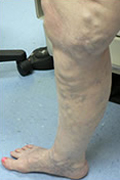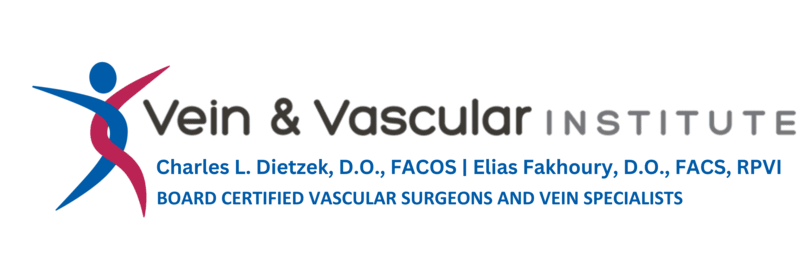Varicose veins are those bulging, knotted veins that appear deep bluish under the surface of your skin. They are most often on your lower legs, and are the result of venous dysfunction. They do not serve a useful purpose in your body, and they are unsightly. If left untreated, varicose veins can cause uncomfortable effects such as itching and burning sensations around the veins, and aching, swollen legs, especially with prolonged standing and sitting.
Varicose vein treatment is necessary if you want to get rid of your varicose veins and relieve symptoms. In some cases, home therapies can help slow their progression or alleviate symptoms. Still, you may need to go to a vein clinic for your vein treatment. Vascular surgeons offer a range of high-tech treatment options that are effective and minimally invasive.

The first line of defense against varicose veins is to avoid sitting or standing motionless for long periods of time. Break up these periods with standing or walking. You can also lose a few pounds if you are overweight, to reduce pressure on your lower legs, and exercise regularly with your doctor’s permission, to improve circulation.
Since varicose veins result from blood pooling in your lower legs, you can try to counter this effect by wearing compression stockings. These stockings, available at pharmacies, promote blood pumping back to your heart. A pharmacist can advise you on the size and strength of stocking to purchase.
Home Therapies for Alleviating Symptoms
You can also work to reduce unpleasant symptoms of varicose veins. Ice is an anti-inflammatory, and it can relieve pain and decrease inflammation when your legs start to swell and ache. You might also consider taking an anti-inflammatory over-the-counter medication, such as ibuprofen, if your permits it. When you sit or lie down, elevate your feet to reduce inflammation and promote blood flow back to your heart.
Going to a Vein Clinic
If these self-care approaches do not work, you might need to go to a vein center for your vein treatment. Since varicose veins can be dangerous, they are often considered medical conditions, and care for them may be covered by your medical insurance. Select a clinic that will work with you on payment, and whose vein doctors are highly recommended.
Medical Varicose Vein Treatment Options
Vascular surgeons can recommend a course of varicose vein treatment that is appropriate for the size and type of varicose veins you have. For example, sclerotherapy involves injection of a solution into your veins to destroy the vein walls and eliminate the varicose vein, while endovenous radiofrequency ablation applies heat through a catheter. Ambulatory microphlebectomy is another options. You can see results quickly and need only minimal or no down time with these types of varicose vein treatment.
